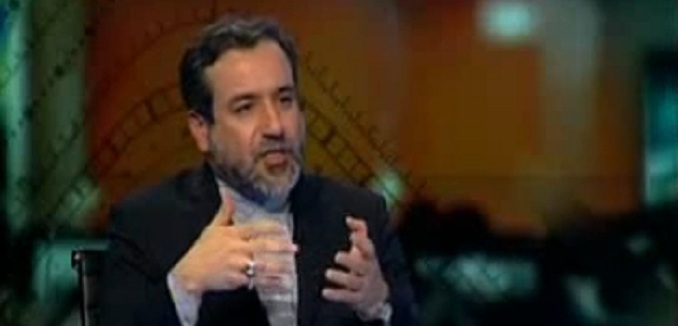The Washington Post‘s editorial this morning emphasizes that Iran’s “advanced centrifuges and the Arak [plutonium] reactor must now be part of any deal” that would provide Tehran with sanctions relief, since the “new facts” established by Iran’s recent installation of advanced uranium and plutonium technology have “torn some big holes” in what might have been a more reliable deal even a year ago.
Iran has signaled that it is prepared to offer limited concessions in exchange for Western concessions on sanctions, including limiting uranium enrichment to 3.5%. The Post notes that Iran’s advanced uranium enrichment centrifuges have changed the game:
A year ago, Iran’s growing stockpile of uranium enriched to 20 percent appeared to be the most dangerous piece of its nuclear infrastructure, because that material could be quickly converted to bomb-grade. The enrichment takes place in an underground facility that has little plausible use other than for weapons production. A freeze or shutdown of that plant and the securing of the material already produced, if accepted by Tehran even six months ago, would have eased the threat that Iran could race to produce a bomb sometime soon.
Since then, however, Iran has begun installing a new generation of centrifuges at its largest enrichment plant, in Natanz. Because they can process uranium far more quickly, these new machines create a threat of an Iranian nuclear breakout beyond that posed by the 20 percent stockpile.
This evaluation is in line with analyst estimates that Iran could go from 3.5% purity to weapons-grade purity quickly enough to evade Western detection. Meanwhile Iran’s Arak complex, which involves both a heavy water production facility and a reactor that would use that heavy water for plutonium production, would give Iran the material for two nuclear bombs every year.
U.S. lawmakers have called on Iran to, among other things, completely dismantle its nuclear program and – critically – to ship out all enriched uranium. Iran has brushed aside the expectations, with Iranian Deputy Foreign Minister Abbas Araqchi noting on Sunday that Tehran would not agree to export its stockpile of enriched uranium.
The posture has been dubbed by the Foundation for Defense of Democracies’ Mark Dubowitz and Reuel Marc Gerecht as Iran’s strategy of simultaneously pursuing both nuclear weapons and sanctions relief:
Iranian leaders probably are entering these negotiations for one reason: to test Barack Obama’s mettle. They want to see whether Tehran can have the bomb and sanctions relief. The strategy for doing so isn’t complicated. The regime could suspend work at the Arak heavy-water facility, the regime’s plutonium path to a bomb, and stop enriching uranium to 20 percent, the big step in processing it to weapons-grade. But without a verifiable end to centrifuge production, the regime could continue to manufacture centrifuges, shrinking the time required to convert unprocessed uranium to bomb-grade stock. With enough advanced centrifuges, a 20?percent stockpile becomes operationally much less relevant given the increased speed of processing.
Senator Mark Kirk (R-IL) meanwhile took to The Telegraph this weekend to similarly blast suggestions that the West should accept “superficial concessions” such as limiting enrichment to 3.5%, describing such a potential agreement as “appeasement”:
With the installation of advanced centrifuges at Natanz – with an output four to five times greater than the basic centrifuges used at Fordow – Iran could agree to suspend all enrichment at the Fordow facility and still be in a position to produce weapons-grade uranium without detection by the middle of next year. Separately, if the regime is allowed to bring online its heavy water reactor in Arak, it could establish an alternate pathway to a nuclear bomb, producing enough plutonium each year for one or two nuclear weapons.
[Photo: TheWorldVideoNews / YouTube]




